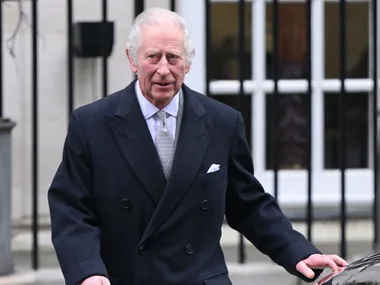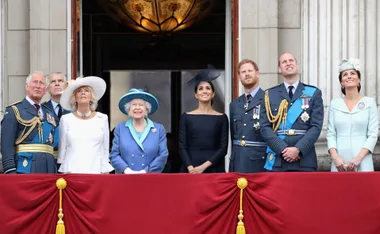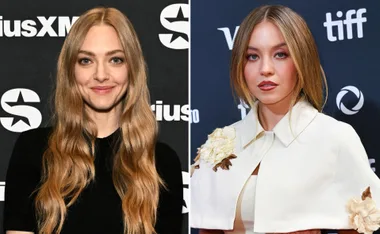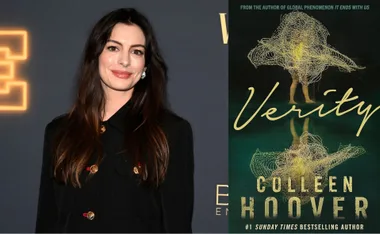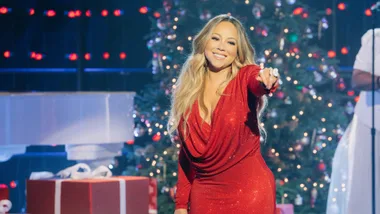Talented Tasmanian writer, Rachael Treasure, has set her debut novel, Jillaroo (Penguin, $19.95 ) in rural Australia. It is a funny, sexy, romantic and ultimately moving drama about a young woman named Rebecca, who makes her own way in the world after a terrible argument with her father. A family tragedy leads to redemption.
Q What did you set out to achieve with Jillaroo?
A I wanted to write something that would connect to city as well as rural people. To bridge the big gap that’s getting wider between the city and the country. And to put forward a strong female character that’s gritty enough for someone like me to like. A young woman who’s not too concerned about how she really looks or what her hair is doing at the time. My girlfriends and I get annoyed with some of the heroines in modern day TV – we like someone who’s gritty and real, like Rebecca.
Q Why do you think there is an ever widening gap between country and city people, and what made you notice it?
A It is reflected in media and popular culture, and it’s ever widening. We’re so multicultural now. And people don’t have the aunties and uncles who have farms any more, so they don’t visit the country like they once did. People are working longer hours and I think it gets harder and harder for people to get out of the city, too.
Q Where do you live in Tasmania?
A Fingal Valley in the north-east, one-and-a-half-hours out of Launceston, on my cousin’s farm. I do a bit of stock work. As well as writing, I also train working dogs. Right now, I’m handling dogs for the truffle harvest. I’m dog mad.
Q Are truffles a new crop in Tasmania and aren’t pigs traditionally used to sniff them out?
A Yes, the truffles have been six years coming. Traditionally, pigs are used, but they grow so huge and they’re difficult to transport- it’s too hard. Dogs are so much easier.
Q How do you give them a “whiff” of truffles?
AI train them with truffle oil. I’m training Chips, a springer spaniel. It’s funny, I’ve got three kelpies and a border collie, and they keep looking at Chips as if to say “you look so strange!”
Q I know you breed kelpies, how many dogs (at any one time) do you have there?
AWhen we have a litter, we could have up to 11 dogs.
Q You dedicated the book to your husband John and your dog Dougall, who died of a snake bite last year?
A Dougall was my soul mate – though my husband, John is, too. Dougall led me into dog training, he was an exceptional dog. When I was an ABC reporter, he was even interviewed on Triple JJJ! I was a rural reporter as well, so he’d come on air with me occasionally. He could talk and he was a champion high jumper as well – he could jump three metres. He was coming up for eight years old when he died. He would sit under my desk all day. He was a go everywhere dog. Dougall even went to the ABC studios in Melbourne to attend a Christmas party. He rode up in the glass lift and he met Tim Lane. Even though he was a good working dog – he was brilliant with sheep – Dougall was also a gentleman, he would charm the ladies.
QAnd he got bitten by a snake last year?
A We think, we’re not sure. We were shearing at the time and he was really sick, and we were about an hour-and-a-half from the vet. By the time I got him down there, it was too late, he went downhill quite quickly. And we didn’t notice he was sick. He was absolutely ballistic at work. So he’d cramp up at night, and we all thought he’d worked hard – we didn’t realise he was sick. If it hadn’t been shearing time, we would have noticed something was wrong. It’s one of those things I’ll never recover from. Farmers know you are blessed with one brilliant dog in life, and he was it. My other dogs are very talented, but I don’t have that soul mate any more. He was a border collie crossed with a kelpie. Border collies really connect with people.
Q It sounds like he had quite a vocabulary?
A I sat down and worked out the words Dougall understood and it was phenomenal. He knew hundreds of words or sounds, he was so intelligent. And they are so different to cats. My cat owns the place, whereas dogs are there for you.
QYour husband John is a farmer?
A He’s taken time off farming to study teaching. He’s doing human movement. He wants to work in rural schools part-time as a PE teacher and farm the rest of the time. John’s also a farrier, he shoes horses. If you’re on a small acreage you just don’t want to rely on farming for our income because it is the hardest road to go down. The prices you get for your product are so low and your costs are always rising, and if we want to look after the environment of our farm, we need extra cash to do that – it takes money to put in extra trees or protect your waterways or creeks. John loves kids, so he’s off to make a difference in rural schools.
John’s family run cattle in the high plains in Gippsland, Victoria. We go there three times a year, more if possible, to help. It’s one of the longest droving routes in Victoria. We take the cattle along the road. They run mostly Hereford cattle and we have a few breeding cows in amongst their herd. So we go up and help out. John is the fifth generation to be in the cattle business.
Q Do you come from a farming family, too?
A Both sides of my family are connected with farming. My grandfather was a farm labourer and rabbiter back in the 1930s, and hunted for skins such as wallaby etc. My mum’s grandfather was a farmer as well. I think I’m fourth generation Tasmanian. There were three daughters and mum’s land was all sold up because there were no sons. So I think that’s been an influence in the novel, the fact that girls don’t get the options.
Q I’ve always had the impression of rural Australia as being fairly conservative in their views on women and what they can do.
A It can be limiting for young women, but it’s changing. I started off in the shearing sheds and it was very rare that you found women there. I was working as a roustabout. Also, in my time as a journalist, I noticed that if I went to a meeting there would be very few women. Now, 10 years later, there’s women in the sheds – they’re often the best wool classers you can find because they are very sensitive in their touch and they can feel a good fleece when it comes through. Also, they’re pretty particular and fussy. There’s so many women active in agri-politics. So, farming women are really moving things forward.
Q Not like Charlie’s scone baking mother in the book– she really irritated me!
A That means the character really worked then! I don’t like to say I based her on anyone (laughing) in particular.
Q How long have you been married?
A Since February. It was a big wedding, but it was very country. I arrived in a ute, John on his horse and the bridesmaids brought our dogs. I was originally a “Smith”. Penguin were delighted when they heard my surname was going to be Treasure because it’s so much more interesting. And so I was teasing them that I’d have to sell my kelpies and get Maltese terriers and a chaise longue with a name like Rachael Treasure. I put aside my feminist ideology about changing names for my husband.
Q Was there any of your relationship with John in the Rebecca/Charlie one in the book?
A In my mind they live and breathe. They’re like my friends. My John is just as handsome and gorgeous as Charlie and muscly and looks good in a pair of Wranglers – he’s all that. Rebecca is a combination of myself and my good friends, but in a confused blend of fact and fiction.
Q How old are you?
A 33.
Q Is it mere coincidence that your book has been published in the Year of the Outback?
A I knew it was coming up, but I had no idea if people would pick up my work or not. I think Penguin had it in mind. Nothing is accidental in publishing. I knew it was coming up, but I didn’t know if I would secure a publisher fast enough.
Q How did you get published?
A People are going to be so annoyed with me, because it was the first publisher I sent it to, so I don’t know what it’s like to get a rejection slip. I sent the first four chapters. I had read a similar book called The Call Of the High Country by Toni Parsons, written by a much older writer, but again it was mountains and kelpies. And I knew that Penguin had published it – I researched my market pretty well. So from the outset of writing the book I wrote it with a market in mind, but that didn’t cramp my creative freedom.
Q Which market?
A The same as Toni Parson’s book. It did very well in the city, but it also appealed to country readers. So I wanted a book that a publisher could put forward to city people, that they could relate to and understand, and be inspired by. And I wanted something that rang true, so if you were a country person you’d say “oh yes, that’s me!”
As a journalist, I could be objective about my work and I know you are writing for a reader, it’s not just an inbuilt passion to write. You’ve got to accommodate all sorts of wide readership.
My first port of call was Penguin. I received a mentorship with the Tasmanian Writer’s Centre. Because I’d been through the mentorship process, Penguin said they don’t normally take unsolicited manuscripts, but because it had been vetted by an experienced writer, they wrote and asked for a full manuscript. They phoned within 10 days of receiving it and accepted it there and then. They knew it had wide appeal. Because Toni Parson’s book had gone well, they had some sort of benchmark. But I wanted to write something that was a little bit more for the younger crowd.
QI was amazed at the amount of drinking that the young characters in the book did.
A That’s something I’ve researched heavily throughout my adult life (laughing). It’s part and parcel of rural culture. I’ve been to an agricultural college and that initiation ceremony in the book is pretty well based on my experience. Part of our culture is based on drinking and it’s accepted. I think it’s the whole work hard, play hard mentality. At a B and S ball, you never see any other drugs. You never see the nasty drugs. While alcohol is still a drug, it’s a legal drug and they go for it.
Q The tortured father/daughter relationship was the book’s emotional core – along with the romance between Charlie and Rebecca. What was your own relationship with your father like?
A I’ve got one of the scariest fathers, but he’s the most supportive. When I say scary, he’s not a communicator, he’s not demonstrative. He’s not a hug, cuddle and kiss kind of dad. But he lets me class his wool, he lets me do his sheep work. He has really inspired me to take a path in agriculture. So, in that sense, I guess the lack of verbal communication is like the father in the book. Most of my friends come from farming families and a lot of rural men do find it hard to communicate. I think, too, that I discovered patterns when I was a journalist and I’d go and interview people. I’d sit at kitchen tables and it was the stuff they didn’t say that I’d pick up on.
Sorry, this is a long answer to your question, but nothing is black and white, is it? So my dad is very supportive. We are taking over his farm this year. He is retiring and we’ll be moving down there to southern Tasmania where he has a sheep farm and we’ll bring cattle.
Q Did you grow up on a farm?
A No, I grew up in Hobart, but it’s basically five minutes out of Hobart, so we went there at weekends. Dad’s a solicitor by trade, he came from a farming background. He became a solicitor so he’d have enough money to buy a farm, which he did in the 1980s, and he always had farming clients. His friend had a farm and we’d go there every weekend since I was born. I remember herding sheep and picking up sticks and rocks from the paddocks.
I spent every single weekend on the farm. It was a lovely blend between city and country. I’d do my schooling in the city and have my weekends on the farm. I can’t say I didn’t grow up on a farm because all of my memories have been at Runnymeade, the property we always visited. And that’s another aspect that has helped me with the novel – I’m streetwise enough to get around Melbourne. I’m not a huge country bumpkin in the sense that I never go and experience the city. I can relate to city people as well.
Q Life on the land is tough. What is it about it that makes you want to try to eke out a living like this?
A The animals. I just adore my animals, I have my dogs and my pet sheep and ducks, chooks. And I love the environment. The fact that you can go outside and you can look at a sunrise and a sunset and there’s no-one else around, and you can really connect and work out what’s real in life. You’re not bombarded with things like you are in the city. You are bombarded with so many messages to buy this or eat here or go there. Whereas the lifestyle of agriculture is if you’re content within yourself and you can connect to nature, then you have everything you need and I think that’s the attraction. And it’s the challenge. My cousin who owns this farm is absolutely dynamic. I mean, I can say he is a genius. He can build any sort of machinery you like.
Q Alongside writing and working on the farm, you also want to expand the business of dog training?
A I want to set up training facilities for working dogs. A lot of farmers, even though they have been farming for generations, have never learned the psychology of dogs. How they work. So that’s one of my passions as well.
Q How valuable is a good working dog?
A They’re worth a good workman. You’d pay a workman about $40,000 a year, so they’re worth their weight in gold. And they don’t complain as much and they don’t need super. They only need somewhere warm to sleep and some food.
Q Where were you born and do you have any brothers or sisters?
A In Hobart. I have one brother who is 18 months older. He is a computer expert.
Q What star sign are you?
A Sagittarian. Can’t you tell I’m kind of mad?
Q Did your mother work?
A Mum is a special-needs teacher.
Q What do you hope?
A That one day, Australian agriculture will become completely sustainable. We need to look after the environment or we’ll starve.
Q Favourite food?
A Lamb chops.
Q Did you have to retreat from everyday work to write Jillaroo?
A I went to a cattle station in Queensland so I could have some space and time to write. All up, I’ve been working on the book for two-and-a-half years.
Q What is the first thing you do each day?
A I feed the dogs and chooks and ducks.
Every day I do something towards my writing. I wrote a feature which is screening on SBS TV this year, called Albert’s Chook Tractor, and I am working on the second draft of a screenplay for a feature film called Bachelor and Spinsters.


